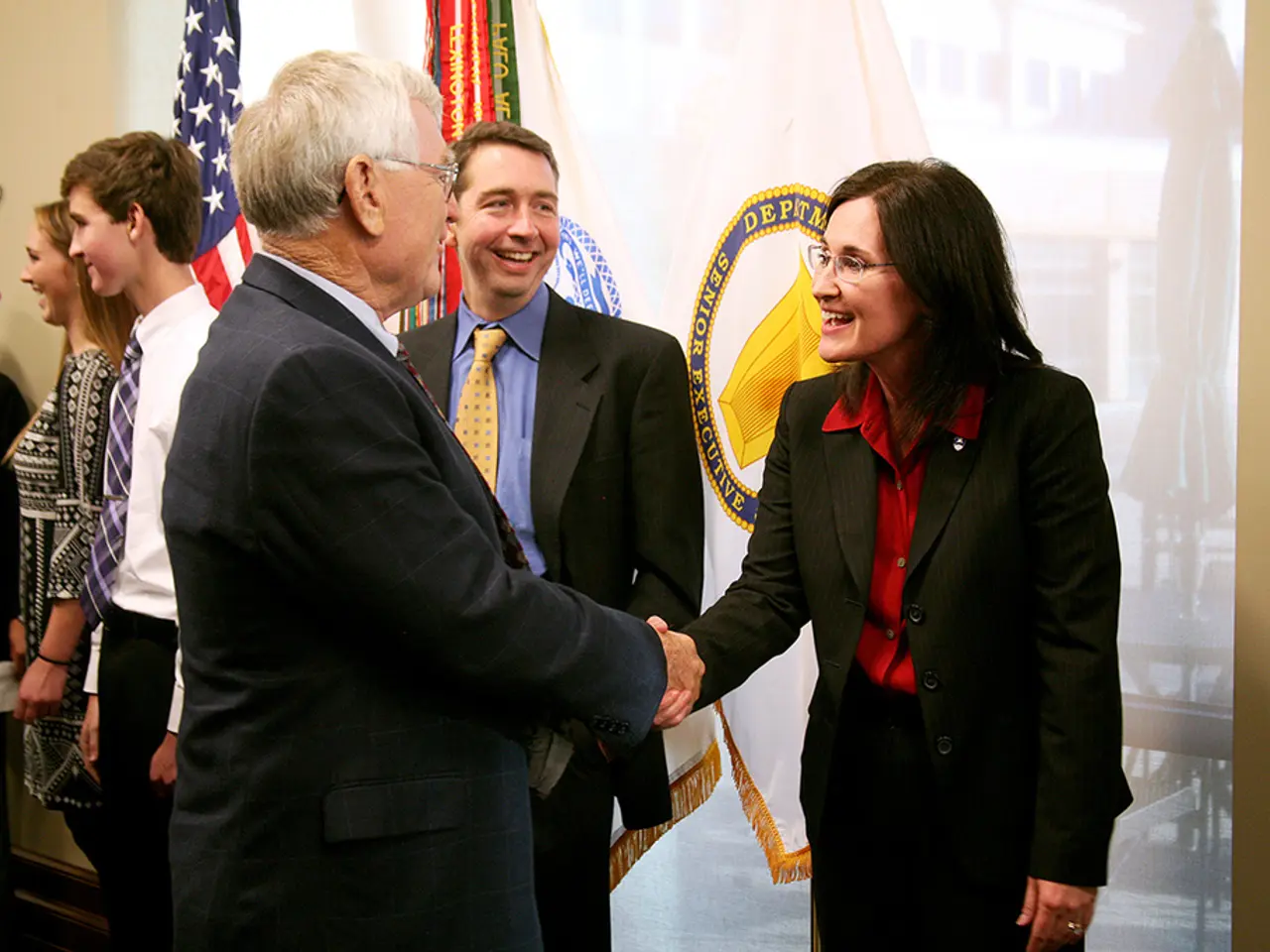Voigt maintained composure following the unsuccessful nomination of the constitutional judge. - Open position for a constitutional judge following unsuccessful election attempt
In a recent development, Thuringia's Minister President, Mario Voigt, has proposed improvements to the election process for judges at the Federal Constitutional Court in Germany. The proposed changes aim to ensure a majority for candidates, addressing the current challenge of political gridlock that can occur when a two-thirds majority of Bundestag members is required for election.
Voigt's suggestions include developing cross-party agreements, revising nomination rights to include more parties, increasing transparency and dialogue among parties, and encouraging parliamentary leadership to take responsibility for timely elections. These measures are intended to foster better inter-party coordination, broaden candidate proposals, and strengthen the commitment to reaching consensus.
The need for such changes has been highlighted by recent disputes between the CDU/CSU (center-right Union parties) and SPD (center-left Social Democratic Party) over candidate nominations. An example of this challenge is the blocked election of SPD candidate Frauke Brosius-Gersdorf due to political disagreements and controversies, leading to a postponement of judge appointments.
Meanwhile, Voigt has expressed that the talks between his party, the AfD, and the BSW were not particularly fruitful. The meeting between the faction leaders, Björn Höcke from the AfD and Frank Augsten from the BSW, took place approximately two weeks ago at the Thuringian state parliament, not in Berlin or the Bundestag. Despite the meeting, Voigt does not anticipate closer collaboration between the AfD and BSW in Thuringia, nor does he see a possibility of the two parties governing together or tolerating each other in a minority government.
It is important to note that the Thuringian Office for the Protection of the Constitution classifies the AfD state association as securely right-wing extremist. The failed election of three judges for the Federal Constitutional Court, according to Voigt, did not harm the institution.
These developments underscore the complexities of Germany's political landscape and the ongoing efforts to improve democratic processes and institutions. As the election process for the Federal Constitutional Court's judges continues to face challenges, Voigt's suggestions for change may provide a path towards more effective and efficient decision-making.
- The proposed changes by Thuringia's Minister President, Mario Voigt, regarding the election process for judges at the Federal Constitutional Court, involving cross-party agreements, revised nomination rights, increased transparency, and parliamentary leadership responsibility, are part of the policy-and-legislation discussions aimed at improving the general news surrounding politics and politics-and-legislation in Germany.
- The European Parliament, along with the Council and the Commission, may find Voigt's proposed changes for the election process of judges at the Federal Constitutional Court potentially beneficial, considering the European Parliament's commitment to fostering effective and efficient decision-making within European politics and policy-and-legislation.






